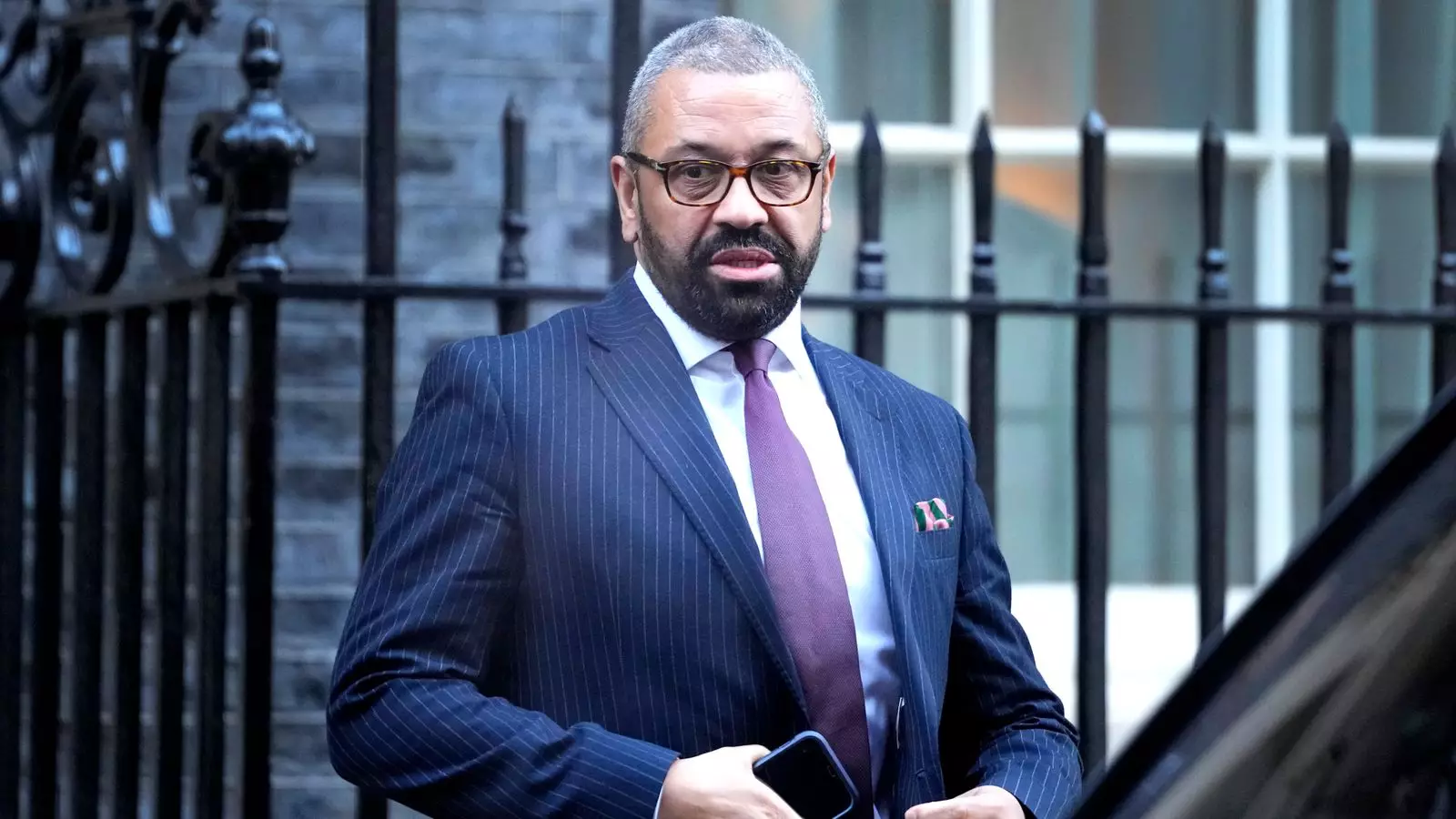The government is set to unveil a series of measures aimed at tackling the unprecedented levels of legal migration currently faced by the UK. Home Secretary James Cleverly is expected to outline these measures to the House of Commons, including a significant increase in the minimum salary requirement for skilled foreign workers, from £26,200 to over £35,000. Additionally, it is anticipated that Cleverly will announce a reduction in health and social care visas and a revision of the shortage occupation list, both of which have been a focal point for Immigration Minister Robert Jenrick.
Prime Minister Rishi Sunak has faced criticism from within his own party following the release of new figures revealing that legal migration has reached an all-time high. This increase in numbers comes despite a Conservative manifesto pledge in 2019 to bring migration levels down. Revised estimates from the Office for National Statistics (ONS) put net migration to the UK in the year to December 2022 at a record-breaking 745,000.
Acknowledging that the figures are “too high,” the prime minister has promised to take the necessary steps to reduce migration levels. He has come under particular pressure from Immigration Minister Robert Jenrick, who has proposed a five-point plan that includes implementing a cap on health and social care visas and raising the minimum salary threshold. However, any measures that limit visas in these sectors are likely to be met with controversy, given the ongoing workforce crisis and the increasing NHS waiting list. The government is also considering restricting the number of dependants that foreign health and social workers can bring to the UK.
A significant part of the government’s plan involves revising the shortage occupation list, which enables foreign workers to be paid 20% below the prevailing rate for roles suffering from a shortage of skilled labor. Sources have revealed that the list will undergo a comprehensive review, with stringent criteria imposed for any exceptions. This move seeks to ensure that only occupations experiencing genuine shortages benefit from reduced wage requirements.
Concurrently, Home Secretary James Cleverly is actively working to finalize a new treaty with Rwanda to address concerns raised by the Supreme Court regarding the deportation scheme. The scheme, originally introduced in April 2022, aimed to redirect asylum seekers arriving on small boats across the English Channel to Rwanda for claim processing rather than allowing them to enter the UK. However, the Supreme Court deemed the scheme unlawful, citing the potential risk of individuals being returned to their countries of origin, which would be in violation of international law.
To overcome this legal obstacle, Cleverly is reportedly close to securing a new treaty with Rwanda that addresses the court’s concerns. If an agreement is reached, domestic legislation is planned to allow the UK Parliament to assert that Rwanda is a safe destination for asylum seekers arriving in Britain.
The success of the deportation scheme is crucial to Prime Minister Rishi Sunak’s commitment to “stop the boats,” one of the five pledges he made upon assuming office. Current figures indicate that the number of individuals crossing the English Channel on small boats has surpassed the total for the entire year of 2021, making 2023 the second-highest year on record for arrivals. As of 2 December, Home Office data shows that 28,972 migrants have been detected crossing the channel, compared to 28,395 in all of 2021. Despite this increase, the figures for 2023 represent a 34% decrease from the record-breaking year of 2022, which saw 45,728 crossings recorded.
In response to the alarming levels of legal migration, the UK government has proposed a series of measures designed to reduce the number of foreign workers entering the country. These measures include a substantial increase in the minimum salary requirement for skilled workers, the scaling back of health and social care visas, and a review of the shortage occupation list. Simultaneously, efforts are underway to finalize a treaty with Rwanda to address the legal concerns surrounding the deportation scheme. The effectiveness and potential repercussions of these measures remain to be seen, particularly in light of the challenges posed by the ongoing workforce crisis and the need for foreign healthcare professionals.

Leave a Reply